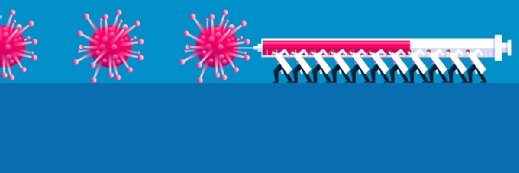
Getty Images
J&J Ulcerative Colitis Clinical Trial Produces High Rate of Remission
A Phase 2 clinical trial found that nearly 50% of patients suffering from ulcerative colitis reached clinical remission with a combination of guselkumab and golimumab.
Johnson & Johnson announced positive results from the VEGA Phase 2 clinical trial that paired the monoclonal antibody Tremfya (guselkumab) and the immunosuppressive drug Simponi (golimumab). The trial compared the combination of drugs against Tremfya or Simponi alone and found that the combination therapy was significantly more effective at helping ulcerative colitis patients reach remission.
Out of 71 patients, 47.9% with moderately to severely acute active ulcerative colitis (UC) achieved clinical remission at week 38 when treated with Tremfya and Simponi and a maintenance dose of Tremfya, versus 31% treated with only Tremfya and 20.8% with only Simponi. All treatments had similar rates of adverse events through week 50 of the study. In total, 13.1% of patients discontinued treatment before the end of the study period.
“The 38-week VEGA data suggest the potential that guselkumab and golimumab combination therapy has in patients with moderately to severely active ulcerative colitis for whom previous conventional treatments have inadequately managed their disease or improved their well-being,” said Jan Wehkamp, MD, PhD, Vice President and Gastroenterology Disease Area Leader at Janssen Research & Development.
Combination therapy using guselkumab and golimumab is still under investigation and has not yet been approved for adults in the United States.
Ulcerative colitis is an inflammatory bowel disease that affects fewer than 200,000 US patients annually. In severe cases, it can lead to an increased risk of colon cancer and require surgery. Currently, there is no cure for UC, but some people can maintain symptom-free remission for years with the help of medication.
Johnson & Johnson’s previous SEAVUE study found that the company’s biologic Stelara produced clinical remission in 64.9% of UC and Crohn’s disease patients after one year of treatment. The Stelara study enrolled a larger population of 386 patients and had a higher rate of discontinuation rate than the later VEGA Phase 2 clinical trial.
The clinical remission rates for both J&J trials are relatively high compared to other UC drug trials.
In 2020, a Bristol Myers Squibb Phase 3 clinical trial tested the effectiveness of Zeposia on patients who had UC and reached clinical remission in 18.4% of patients. Zeposia is currently the only immune modulator approved in the United States for treating UC.
Pfizer’s Phase 3 randomized clinical trial of its JAK therapy — an S1P receptor modulator — improved clinical remission for UC patients at week 12 of the trial. JAK is the same class of immune modulator as Zeposia and would give patients another treatment option if approved for UC treatment.





